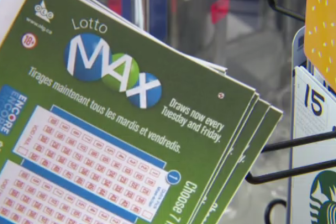Alberta election fact check: How the UCP, NDP tax plans could affect Albertans
Of the two things that Benjamin Franklin said are to be certain, only taxes have come up in Alberta’s provincial election.
And each of the major parties have major planks in their platform that involve paying taxes. But they’re in different guises.
The incumbent United Conservatives are promising a new tax bracket of 8 per cent for the first $60,000 of personal income.
And the Alberta NDP are promising to eliminate the small business tax for some small corporations while also increasing the corporate income tax rate to 11 per cent, keeping it the lowest in the country.
The UCP claim their new tax bracket would save each person $760. And they claim the NDP’s tax increase will lead to the province’s economic ruin.
Let’s take a look at those and other claims.
At the start of the election period, the UCP came out of the gate with the promise of the new tax bracket.
The 8-per cent tax bracket for the first $60,000 of income was promised to save $760 per adult or $1,500 per family.
“This permanent, billion-dollar tax cut will provide meaningful, timely tax relief to Albertans at a time when they need it most,” UCP Leader Danielle Smith said on May 1. “It will result in real and significant savings that can be put towards housing, life’s other necessities, planning for the future, or whatever else is a priority for you.”
But a pair of economists in Calgary don’t think all Albertans will enjoy $760 more per year for “housing, life’s other necessities, planning for the future, or whatever else.”
Lindsay Tedds, a University of Alberta associate professor of economics whose research focuses on tax policy, published a paper with PhD candidate Gillian Petit looking at who would benefit from the UCP’s proposal.

The final week of campaigning ahead of the May 29 Alberta Election
“(It’s) a great policy from a progressivity standpoint and what we did publish, Gillian and I, was talking about how the narrative that everyone is going to save $760 a year is false,” she told Global News.
They found individuals with lower incomes are affected more by changes in tax rates.
Tedds says the $760 per person is a best-case scenario and technically correct, but is most likely to be realized on the higher end of incomes.
“Anybody earning about under $22,000 derives no benefit from this — granted that’s because they’re not paying any taxes,” Tedds said, referring to the personal income exemption amount.
“And then people between $22,000 and $60,000 save on average, maybe about $150, $200 in tax savings,” she said.
“But you have to be quite high up (in income) to be able to take advantage of all of those non-refundable tax credits in order to be able to get the maximum savings from it.”

‘Everyone’s afraid of Danielle’: UCP canvassing strategy revealed in Take Back Alberta meeting
Federal tax data from 2019 shows about 1.2 million Albertans filed tax returns below the $60,000 threshold and 1.1 million above.
Tedds said, due to the income distribution among the sexes and how Canada’s tax system works, “the $760 (in promised savings) is concentrated amongst high income men.”
“This entire complexity in our tax system makes that mathematical exercise only applicable to a very small group of people.”
U of C economics professor Trevor Tombe said the economic implications of the UCP plan are “likely pretty small.”

Swing voters, fact-checkers react to Alberta Leaders Debate
He said the UCP’s estimate of the income tax policy would be around $1 billion is “completely fair,” but would have other costs.
“The trade off is that there’s less revenue to the government. That means we’re more reliant on resource royalties than we would be without the tax reduction,” he said.
Tedds was surprised to hear an Alberta conservative party proposed another tax bracket, given the Klein-era legacy of the flat tax system that was in place from 2001 to 2015.
The NDP’s plan to increase the corporate tax rate from eight per cent to 11 in a bid to raise revenues was released on May 16 as part of the New Democrats’ costed platform.
Under the NDP plan, corporate taxes in Alberta would remain the lowest in the country.
Former ATB chief economist Todd Hirsch endorsed the plan, saying it “works for everyone.”
The UCP called it a “job-killing strategy.”
The Alberta Chambers of Commerce, the Christian Labour Association of Canada and the Alberta Enterprise Group — which previously counted Danielle Smith as its president — panned the NDP’s plan.
And while the Calgary Chamber applauded the NDP’s small business tax cut, it urged both parties to keep corporate taxes at eight per cent.

Calgary Chamber of Commerce releases provincial budget priorities
The plan also came under fire when the NDP acknowledged it hadn’t accounted for the mechanical effects of the changed tax rate.
Tombe said those mechanical effects include more work done by corporations in tax avoidance and ensuring tax credits are claimed. Companies will also shift their tax burden to different jurisdictions.
All told, that can cut estimated revenues of $800 million per percentage point in half.
In an editorial published by Postmedia, Jack Mintz estimated the effects of the NDP corporate tax rate to be “significant” and projected the three percentage point increase would “result in an investment loss of $1.1 billion to Alberta and an employment loss of 33,700 jobs.”

Leaders likely to aim for the political center in Alberta election debate: U of A political scientist
Tombe disagrees with those numbers, especially the jobs numbers. Using a method from research based in the United States, he would land on a job loss of about half of what Mintz reached.
“That might sound like a lot, but we don’t measure employment in Alberta with anything greater than a precision of 20,000. That’s the margin of error,” he said.
Tombe also said the generalization “When you reduce taxes, you end up attracting jobs and investment in people; when you increase taxes, you chase it away,” as said by Danielle Smith in the leaders’ debate, provides no insight into how big those effects are.
“The true effect is not zero, but it’s also not large.”
He conceded that taxing something tends to produce less of it. When applied to corporate income, it’s likely to affect investment and related employment.

UCP says NDP’s economic plan will kill jobs and cause people to flee Alberta
“But the effects are small and at the margin, and those costs may be worth paying if the use of your public funds has benefits that exceed the costs,” Tombe said.
“There’s not a fixed pool of investment dollars from the perspective of Alberta’s economy. It doesn’t really matter what the tax rates in other jurisdictions is. What matters is what the tax rate is in Alberta, because that affects the after tax return on any new investment dollar that it’s put towards a project.”
Both economists said despite the UCP’s claim it was a “38 per cent increase in taxes,” the NDP’s proposal is only an increase of three percentage points.
Tedds said research from the United States shows an outcome of lowering corporate taxes that neither party has addressed in this election.
“Over the last 10 years, as people have been studying the Tax Cuts and Jobs Act down in the United States, we’re actually seeing different behaviour on the part of firms that we didn’t necessarily see before,” she said.
“For example, using these tax cuts to engage in share buybacks that have absolutely no economic value.”

Decision Alberta: NDP Leader Rachel Notley joins Global News Morning
Tedds said those stock buybacks primarily benefit the companies, their executives and shareholders. And while the shareholders can include pension holdings and some retail investors, Tedds said most people who benefit from the share buybacks are high net worth individuals.
“We’re being promised that this tax reduction is going to lead to jobs. And if you think about the oil and gas workers who are still trying to come back from the 2014 oil price collapse, you’re kind of promising them something that doesn’t necessarily end up being the reality for them,” she said.
“It was in an environment as the oil and gas companies were getting out of labour, getting more into capital, and we just didn’t see that promised job growth, which is problematic to the public and the voters.”
Hurdles for small business tax break
Speaking at a politically-minded clothing store in central Calgary on May 15, NDP Leader Rachel Notley promised she would not just cut the small business tax, “I will eliminate it.”
The two-per cent small business tax rate cut down to zero under an NDP government would only apply to Canadian-controlled private corporations (CCPCs), except for professional corporations.
Notley said it would apply to “more than 100,000 small businesses, including retail establishments, restaurants, mechanic shops, family farms and more. Saving small businesses up to $10,000 per year.”

Decision Alberta: UCP Leader Danielle Smith joins Global News Morning
Tedds pointed out that while there is a high number of small businesses in the province, the tax break would only apply to those that have incorporated.
“When we look at businesses, it’s women and racialized Canadians that typically don’t incorporate. So incorporation is in itself a hurdle and a barrier, and it really only makes sense to incorporate it if you’re to derive an income of over $100,000 or so because otherwise the costs and benefits don’t work out,” she said.
“The other inconvenient fact is that CCPCs are used as a tax shelter by high income earners.”
The UCP and NDP promised no increases to personal taxes.
Tombe and Tedds said both the tax plans from the NDP and UCP will only nudge the economy in marginal ways.
“That’s the theme of the day here: all of the changes that we are contemplating with these parties are nudging things up and down at the margin. They don’t represent big, fundamental changes in the economic trajectory of the province,” Tombe said.
Both economists said the price of oil and the province’s reliance on resource revenue has more control over Alberta’s prosperity than who is in the seat of power in the Legislature.
Tombe noted both parties’ plans have “ratcheted up” reliance on those resource revenues to the point that oil prices need to be at around $76 per barrel to balance the budget.

Alberta debate: Leaders square off on corporate taxes
Over the past three weeks, West Texas Intermediate prices have fluctuated from $68 to $76 per barrel. Every dollar in change of the price of oil hits the province’s bottom line by $630 million.
Tombe said he would have liked to see more discussion on how to get off the so-called resource revenue rollercoaster.
“We’re in a campaign discussing the merits of fiscal policy proposals by both parties that are based on numbers that are already obsolete, so we need to do things differently in the future,” he said.
Tedds also noted that taxes are not the only factor into investment decisions for businesses. Climate, skilled population, goods and services in the area, and subsidies also attract corporate investment.

‘Everyone’s afraid of Danielle’: UCP canvassing strategy revealed in Take Back Alberta meeting
Pointing to the flight of the banking industry from Quebec following a referendum on sovereignty, Tedds said political certainty is “vastly more important for location decisions” for businesses.
“Political uncertainty has a bigger impact on investment and jobs than anything else.”
She said the Alberta NDP platform appears consistent with that party’s expressed values.
“I see a huge disconnect between values and platform by the UCP because this is an extremely centrist platform that they have put out, with a lot of socialism in it, actually,” Tedds said.
“Because I see such a disconnect between their values, ideology and election platform, I don’t actually have a lot of faith in that election platform being executed.”




